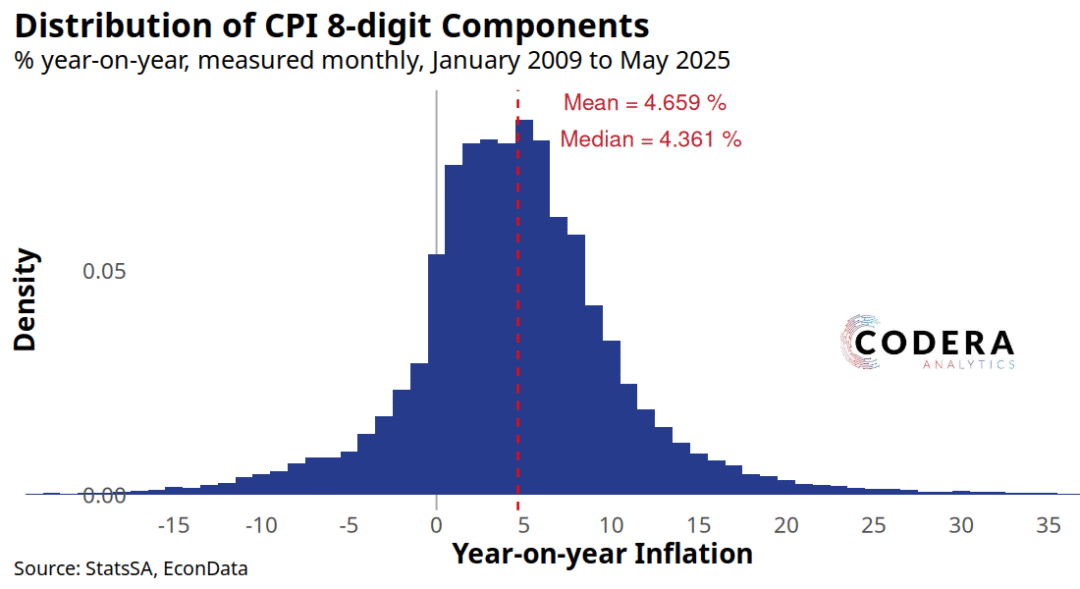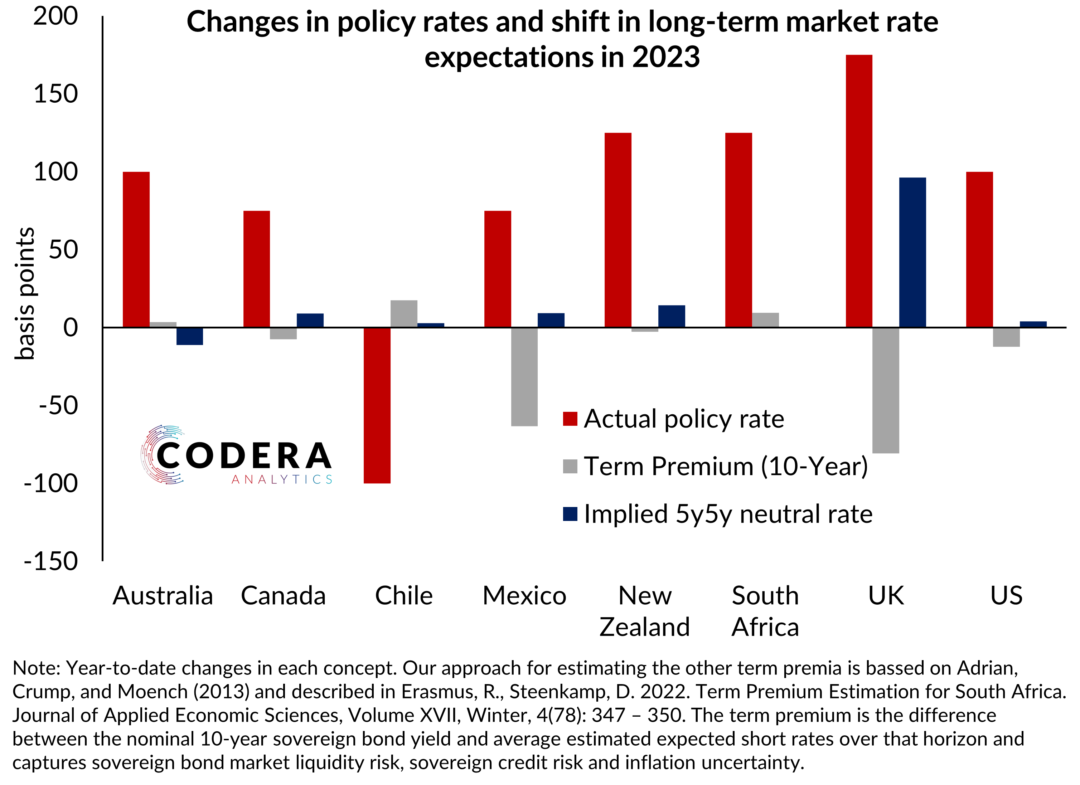Inflation expectations affect economic outcomes by influencing the decisions of individuals, firms, and policymakers. Central banks monitor inflation expectations a proxy for future inflationary pressures. But how useful are inflation expectation measures? In today’s post, we compare 1-year ahead surveyed inflation expectations to actual inflation outcomes 1 year later. The chart shows inflation expectations shifted back 1 year against actual inflation each month. Since 2002, 1-year inflation expectations have, on average, been 0.6 percentage points higher than inflation outcomes one year later. During mid-2022, inflation was more than 3.5 percentage points higher than surveyed expectations had suggested they would be. Another interesting thing to notice from the chart is that inflation expectations are partly backward-looking: as actual inflation rises, individuals and firms raise tend to raise their expectations of future inflation. Between 2017 and 2022, inflation expectations, however, remained well above actual inflation, and then between 2022 and 2023, it took inflation expectations time to rise in response to higher-than-expected inflation outcomes.


